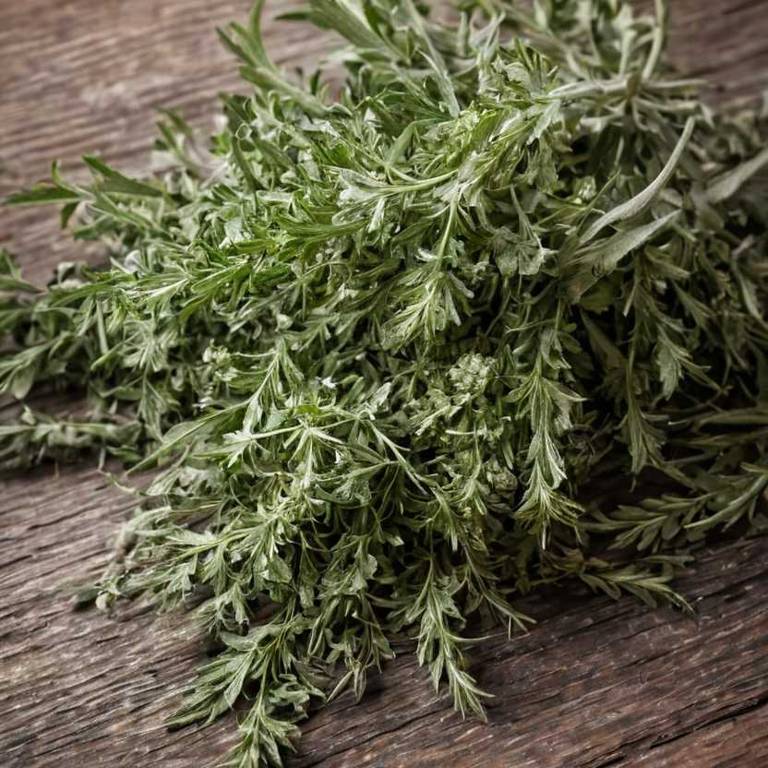Wormwood (Artemisia abrotanum)
Wormwood (Artemisia abrotanum) is a member of the Compositae family, native to Southern Europe, North Africa, and Western Asia. Traditionally, its leaves, stems, and resin have been used for infusions, decoctions, and poultices.
This herb is particularly valued for its bitter, astringent, and anti-inflammatory actions, and has a long history of use in european herbal medicine, mediterranean herbal traditions, and native american herbal medicine.

Quick Facts / Key Information
| Common Name | Wormwood |
|---|---|
| Scientific Name | Artemisia abrotanum |
| Plant Family | Compositae |
| Genus | Artemisia |
| Species | abrotanum |
| Native Range | Southern Europe, North Africa, Western Asia |
| Plant Parts Used | Leaves, Stems, Resin |
| Primary Medicinal Actions | Bitter, Astringent, Anti-Inflammatory |
| Primary Traditional Systems | European Herbal Medicine, Mediterranean Herbal Traditions, Native American Herbal Medicine |
| Historical Preparation Methods | Infusion, Decoction, Poultice |
Botanical Identity
- Scientific Name
- Artemisia abrotanum
- Common Name
- Wormwood
- Synonyms / Alternative Names
- Common Wormwood, Lemonweed, Mugwort
- Plant Family
- Compositae
- Genus
- Artemisia
Botanical Description
- Growth Habit
- Perennial herbaceous plant.
- Height
- It typically grows to a height of 30 to 100 centimeters.
- Leaves
- Sessile, linear, acuminate leaves with upper surface grayish-green and lower surface whitish, bearing dense stomatal bands.
- Flowers
- Inflorescences consisting of dense clusters of small yellow flowers arranged in a panicle, actinomorphic, with four white-tipped petals and prominent stamens.
- Stems
- Erect growth habit with opposite branching, smooth surface, and presence of aromatic resinous secretions.
Traditional Uses / Historical Use
Traditional Systems
- European Herbal Medicine
- Mediterranean Herbal Traditions
- Native American Herbal Medicine
Historical Preparation Methods
- Infusion
- Decoction
- Poultice
- Powder
Medicinal Actions
- Bitter
- As described in traditional systems, a mild bitter, for digestion-related formulations.
- Astringent
- In herbal literature, noted as a warming astringent, for surface-level applications.
- Anti-inflammatory
- In herbal texts, considered a moderate anti-inflammatory, for irritation-related applications.
- Carminative
- Commonly referenced as a gentle carminative, in digestion-focused applications.
Active Compounds
- Essential Oil
- A mixture of naturally occurring compounds responsible for plant aroma.
- Terpenoid
- Plant-produced compounds commonly found in essential oils and resins.
- Flavonoid
- A group of naturally occurring compounds commonly present in many flowering plants.
- Phenolic Acid
- Organic acids commonly occurring as part of plant secondary metabolism.
Modern Research Overview
Modern scientific investigation of this plant has focused on identifying its chemical constituents and examining their properties in controlled research settings. Comprehensive study summaries will be incorporated into this section as additional sources are reviewed.
Safety & Contraindications
- General Precautions
- Precautionary considerations have been reported in relation to this herb.
- Contraindications
- Some conditions have been cited as contraindications for the use of this herb.
- Allergies
- Reports of allergic reactions to this herb are not well documented in available sources.
- Drug Interactions
- Potential interactions with prescription medications have been reported in available sources.
- Toxicity
- Reports indicate that this herb may exhibit toxic properties in some contexts.
- Pregnancy & Breastfeeding
- Information addressing pregnancy and breastfeeding-related safety for this herb is limited.
Preparation & Usage Methods
- Infusion
- Infusions are commonly prepared using hot water to release aromatic and soluble components.
- Decoction
- Plant material is simmered in water to extract compounds from tougher parts.
- Poultice
- This method uses direct contact between plant material and the skin.
- Infused Oil
- Oil infusions capture plant compounds using lipid-based solvents.
- Tincture
- A preparation involving soaking plant parts in alcohol for extended extraction.
Growing, Harvesting & Storage
Growing / Cultivation
- Soil
- Prefers loamy soil with well-drained conditions. Typically grows best in moderate fertility soils.
- Sunlight
- Thrives in full sun. Tolerates full sun to partial shade.
- Watering
- Prefers well-balanced moisture levels. Tolerates periodic dry conditions.
Medical Disclaimer
The information provided on this page is for educational and informational purposes only. It is not intended to diagnose, treat, cure, or prevent any medical condition. Always consult a qualified healthcare professional before using any herb for medicinal purposes.